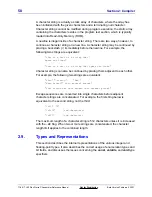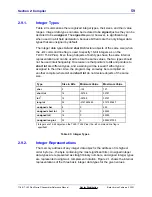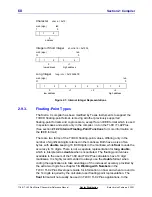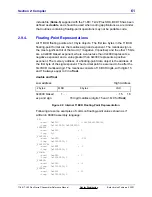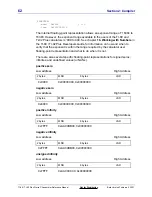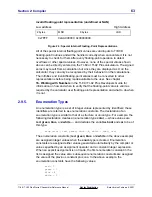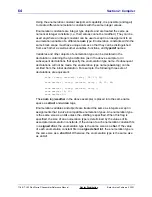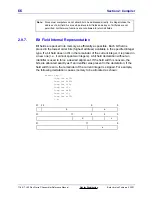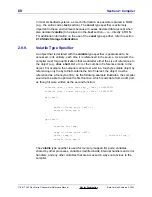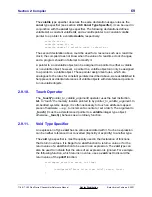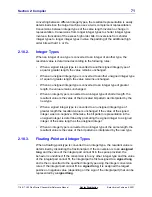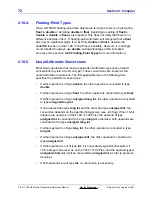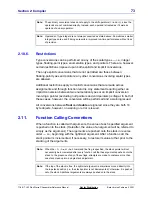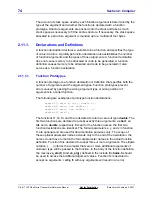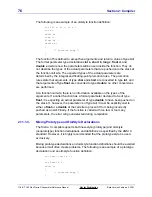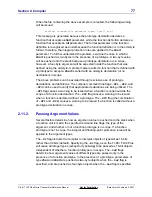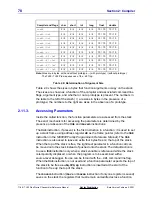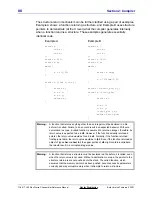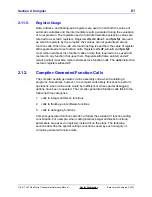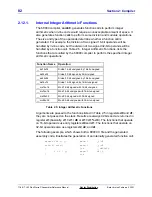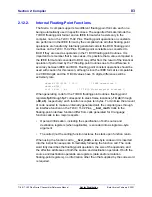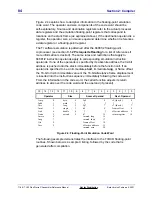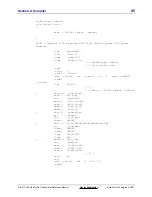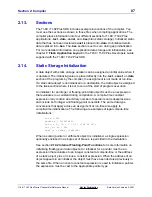
72
Section 2: Compiler
TI
-
89 / TI
-
92 Plus Sierra C Assembler Reference Manual
Not for Distribution
Beta Version February 2, 2001
2.10.4. Floating-Point
Types
Since all TI BCD floating-point data objects are ten bytes, there is no promoting
float to double or demoting double to float. Explicit type casting of float to
double or double to float is also ignored. This does not imply that there is no
difference between them. TI floating-point arithmetic will recognize that a float
has only 14 significant digits. If a cast from double to float is desired, the
round14 function on the TI-89 / TI-92 Plus is available. However, it is strongly
recommended to always use double, taking advantage of the increased
accuracy. (See section 2.9.3 Floating-Point Types for more information.)
2.10.5.
Usual Arithmetic Conversions
Most binary operators that require operands of arithmetic type cause implicit
conversions (to yield a common type). These conversions are known as the
usual arithmetic conversions. The first applicable rule in the following lists
specifies the performed conversions:
•
If either operand is of type double, the other operand is converted to type
double.
•
If either operand is of type float, the other operand is converted to type float.
•
If either operand is of type unsigned long int, the other operand is converted
to type unsigned long int.
•
If one operand has type long int and the other has type unsigned int, the
conversion depends on the specified integer size (see
-XI
flag). When 16-bit
integers are used (as on the TI-89 / TI-92 Plus), the operand of type
unsigned int is converted to the type long int; otherwise, both operands are
converted to the type unsigned long int.
•
If either operand is of type long int, the other operand is converted to type
long int.
•
If either operand is of type unsigned int, the other operand is converted to
type unsigned int.
•
If either operand is
not of type int, it is converted to type int. (Exception: if
16-bit integers are used, as on the TI-89 / TI-92 Plus, and the operand type is
unsigned short int, it will be converted to unsigned int in order to preserve
its value.)
•
If both operands are of type int, no conversion is necessary.

